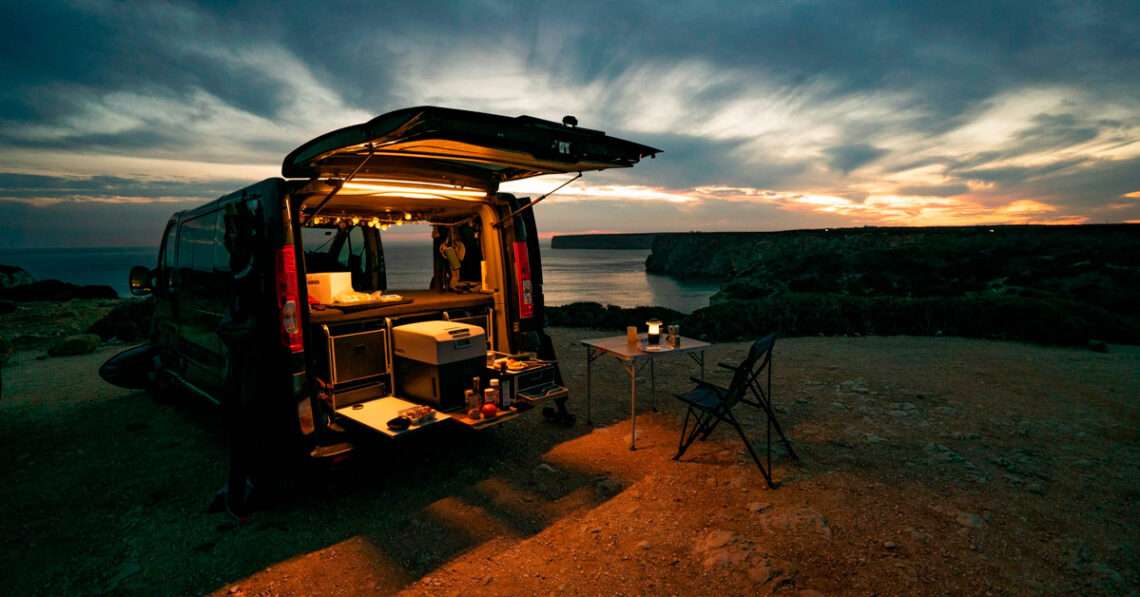
Camping and camper park - what's the difference?
A few weeks ago we shared a CamperSystem post on our Facebook profile. The drone images showed one of the Spanish campers, which had several service points. There were several hundred comments from readers under the post, including: they said that “standing on concrete is not caravanning.” Someone else asked about additional attractions at this "campground". Confusion between the terms “camping” and “camper park” is so widespread that the article you are reading had to be created.
It's hard to blame the readers themselves. Those who do not travel outside of Poland do not really know the concept of “camper park”. There are practically no such places in our country. Only recently (mainly thanks to the already mentioned company CamperSystem) has such a concept begun to operate in the Polish arena of caravanning.
So what is a camper park? This is important because overseas we often see packages with caravans being banned from entry (but this is by no means a hard and fast rule). There is a service point on site where we can drain greywater, chemical toilets and refill with fresh water. In some areas there is a connection to the 230 V network. Service here is kept to a minimum. In countries like Germany or France, no one is surprised by fully automated campervans, where the role of the reception desk is taken over by a machine. On its screen, simply enter the entry and exit dates, the number of people and pay by payment card or cash. “Avtomat” most often returns a magnetic card to us, with which we can connect electricity or activate a service station.
A camper park is, as we noted at the beginning, a parking lot for campervans. It is a stop on the route of caravanners who are constantly on the move, sightseeing and constantly moving around. Camper parks are usually located near tourist attractions. These include water parks, restaurants, vineyards and bike trails. No one expects a camper park to offer the extra entertainment that camping is known for. The terrain should be flat, the entrance should be convenient, so that no one would be surprised by asphalt streets instead of the ubiquitous greenery. We don't spend all our holidays in a camper park. This is (we repeat clearly) just a stop on our way.
Campervan parks may have additional infrastructure in the form of toilets or washing machines, but this is not required. As a rule, in camper parks we use our own infrastructure installed on board the camper. There we wash, use the toilet and prepare restorative meals.
It is important to note that camper parks are open all year round in most cases. This is important in the context of campsites that operate most often in the summer. There are a total of 3600 parking spaces for campervans in Germany. We have? A little.
Do camper parks make sense in Poland?
Certainly! A camper park is a simple infrastructure that does not require large financial resources to create. It is also an easy way to expand business opportunities for those who already own, for example, a hotel and its surrounding area. Then the creation of sites and a service point is a pure formality, but also a way to attract wealthy motorhome clients who want to use the sauna, swimming pool or hotel restaurant.
Not necessarily a camper park, but at least a double service point could appear near Wladyslawowo and the Hel Peninsula. The local community often notices campers parked in various parking lots spilling gray water and/or cassette debris. Unfortunately, caravanners in the area do not have the ability to perform basic servicing at a professional service point. This simply does not exist and there are no plans to create it yet.
Thus, the differences between the two entities are significant.
- a simple square with a service point, where we stop only when using nearby attractions (usually up to three days)
- the cost of living is much lower than in a campsite
- it should be as convenient as possible for use; paved streets and areas should not surprise anyone
- it is not necessary to have toilets or additional amenities
- there are no additional entertainment options such as a children's playground
- Often it is fully automated, with a special machine responsible for the reception.
- an attractive alternative to “wild” stops. We pay little, use the infrastructure, and feel safe.
- designed for long term stay
- rich in additional entertainment located on the field itself (children's playground, swimming pool, beach, restaurants, bars)
- We will pay more for our stay than in a camper park
- no matter the country, there is a lot of greenery, additional vegetation, trees, etc.
- professional, clean bathroom with shower, toilet, washing machine, shared kitchen, dishwashing area, etc.

